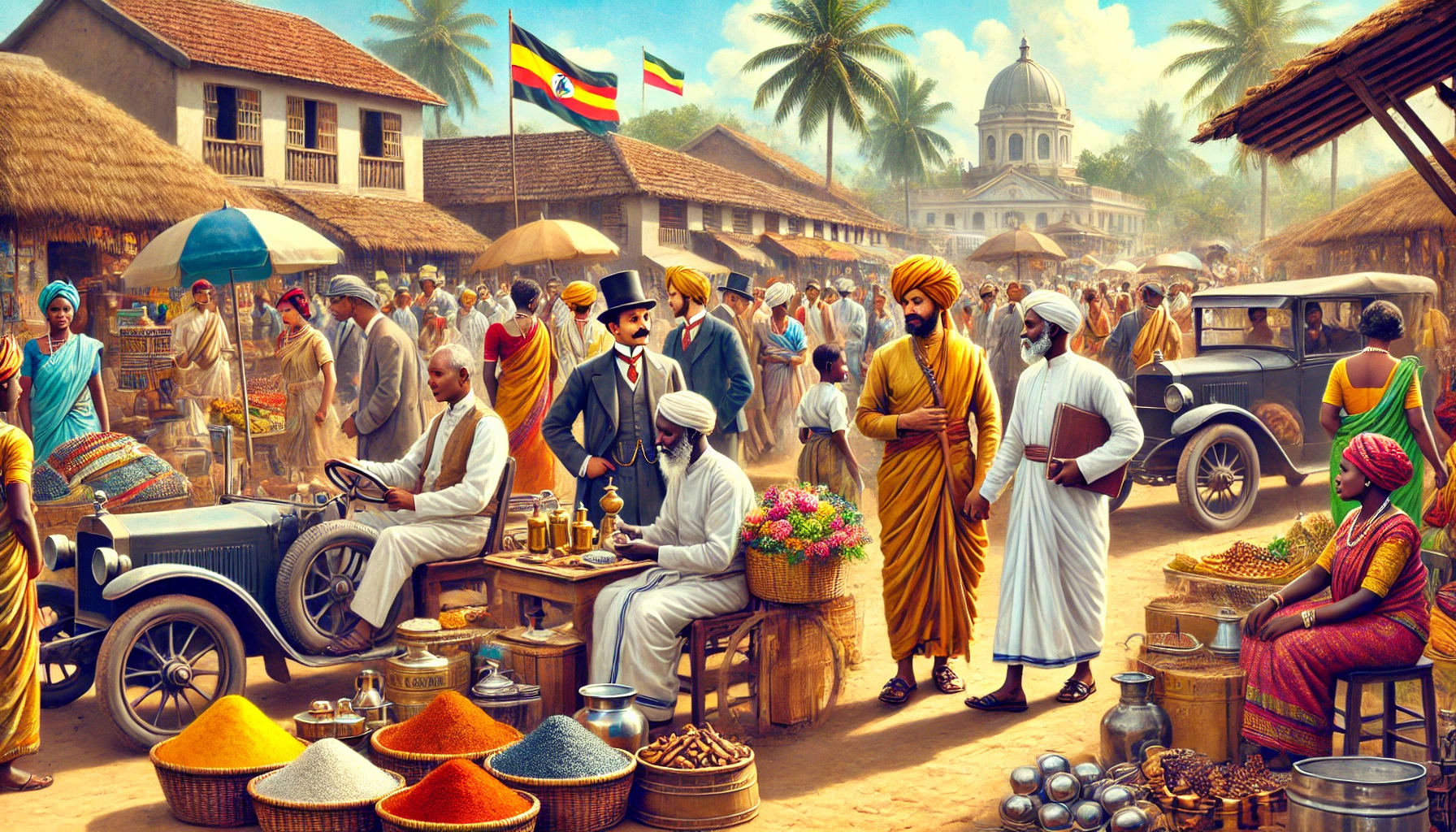The Indian Community in Uganda
The history of the Indian merchants of Africa

During the first half of the twentieth century, the Indian community in Uganda became an economic and cultural pillar, contributing to the growth of trade and industry. Despite challenges and forced expulsion under the regime of Idi Amin, the resilience of Uganda's Indians left an indelible mark on the country's history - AI-generated image
The Indian community in Uganda has deep historical roots dating back to the late 19th century, when many Indians, primarily from Gujarat and Punjab, were brought by the British to construct the Uganda Railway. This ambitious project, often called the "Lunatic Line" due to the extreme challenges and dangers it posed, took years to complete and claimed the lives of many Indian laborers, who had to endure diseases, harsh environmental conditions, and attacks from wild animals. Upon completion, some Indian workers chose to remain in Uganda, establishing the foundation for a community that would significantly impact the country's economy and culture.
Over time, the Ugandan Indian community grew and prospered, becoming a vital component of the local economy. Indians introduced new commercial techniques that helped to develop the retail trade, textile industry, and agricultural production sectors. Many Indians became successful merchants and traders, earning respect but also drawing envy and resentment from some local and European communities. By the 1960s, when Uganda gained independence, Indians made up a substantial part of the national economy, managing the majority of the country’s small and medium-sized businesses.
However, this prosperity also led to social and political tensions. In the 1970s, dictator Idi Amin viewed the Indian community as an obstacle to economic advancement for African citizens and ordered the expulsion of around 80,000 Indians from the country. This decision marked a traumatic and difficult period for Ugandan Indians, who lost their properties and were forced to leave everything behind, seeking refuge mainly in the United Kingdom and Canada.
The expulsion impoverished Uganda’s economy, stripping it of the skills and entrepreneurial expertise of the Indian community. However, in the 1990s, following the end of Amin’s regime, some descendants of the Indian diaspora returned to Uganda to rebuild their lives.
- Hawley John C., India in Africa, Africa in India: Indian Ocean Cosmopolitanisms, Indiana University Press, 2008.
- Hyam, Ronald, Understanding the British Empire, Cambridge University press, Cambridge, 2010.
- Kumar, Mukesh. “Indians in post war Uganda, 1948-62.” Proceedings of the Indian History Congress 72 (2011): 1096–1106.
Toniatti Francesco - Professor of History and Oriental Studies, Master of Arts in International Relations
2025-08-28
Salvatore Ciccarello
